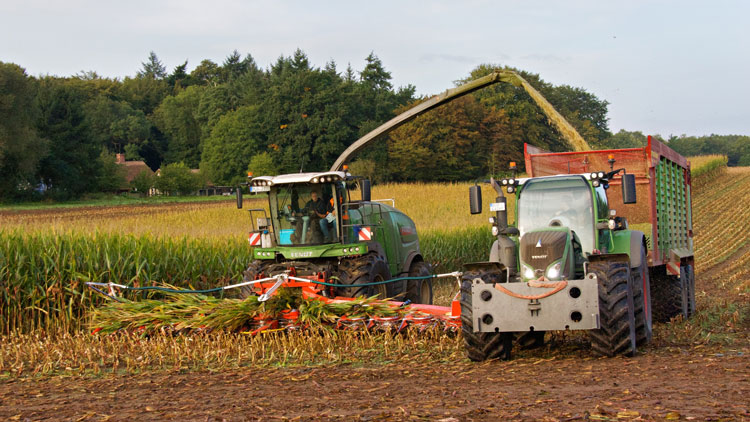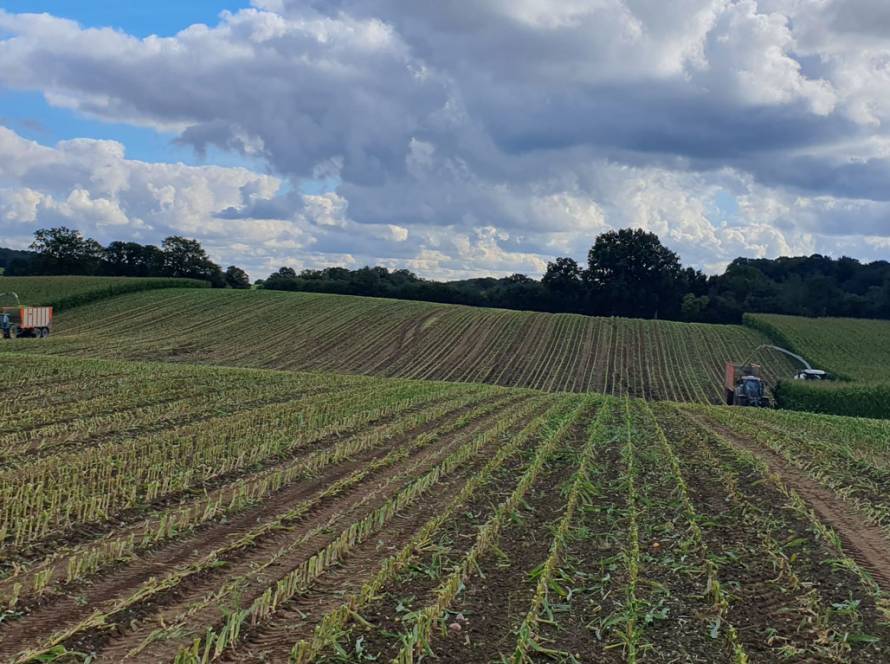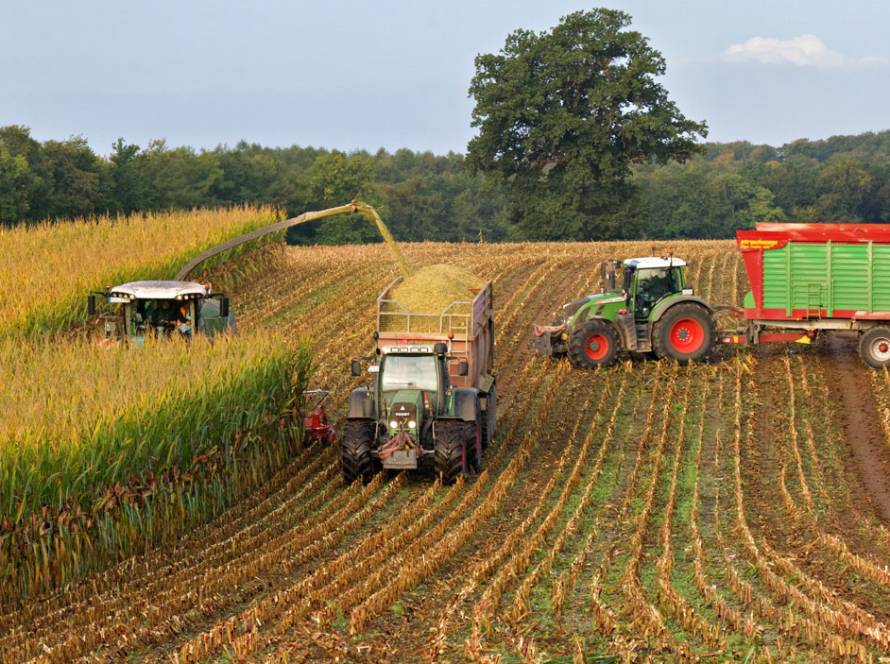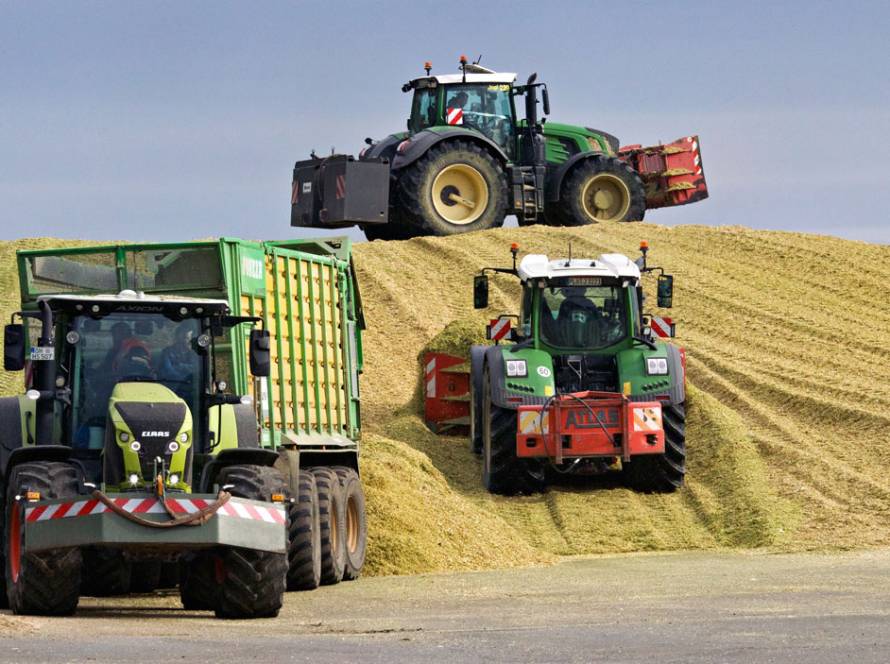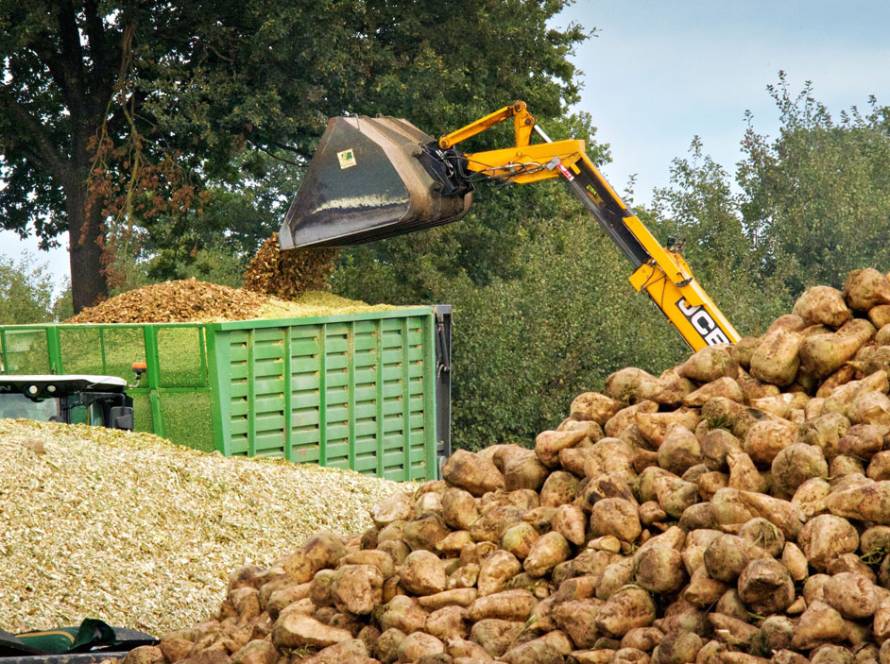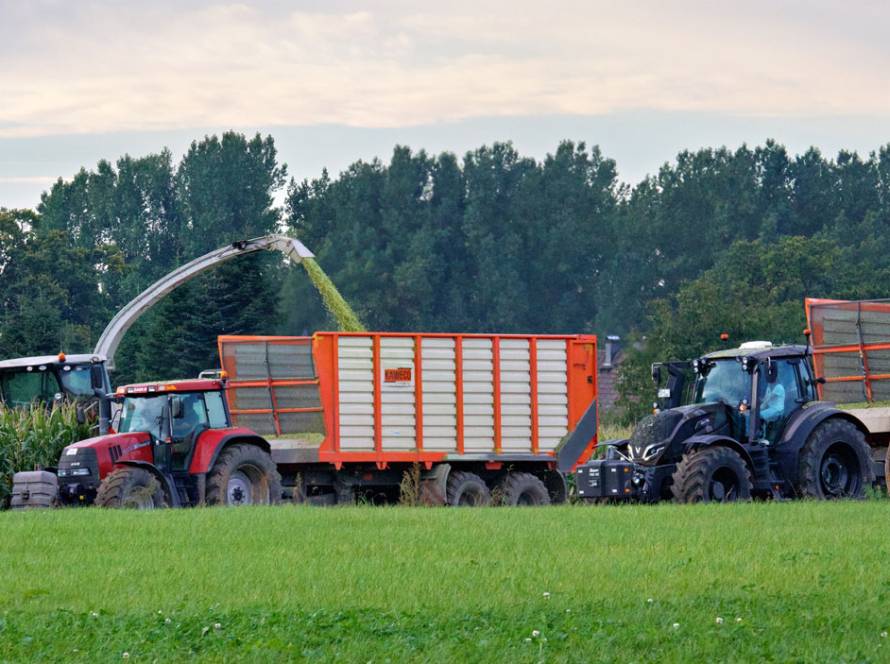This week, another harvest cycle has come to an end for the biogas plants Trent, Fargau, Glasau, and Bredeneek, as well as for the farm Fey from Lepahn. The crops started out in difficult conditions being brought out a little later than usual due to too much rainfall and needing to battle a following dry spell. However, rain set in again just at the right time to pave the way for a successful harvest this year.
Together with the contracting companies Pentzlin, Blunk, and Schröder more than 100 people were involved across all four biogas plants – from driving the five corn choppers and the tractors bringing the chopped corn to the biogas plant, managing the silos and making sure they are securely built and compressed, overseeing volumes and qualities, to making the silos with its valuable good ready for storage to be protected against every weather condition until it is needed again.
This year, the harvest of all biogas plants took about three weeks and resulted in about 40 000 tons of fresh mass. Looking at its yield, the fresh mass outcome was rather average in 2023 compared to other years. More important however, the quality of the dry mass, which is the key indicator concerning the energy output of the biogas plant, was very good and over average.
The biogas plant in Fargau started a trial this year where sugar beets were added to each wagon of chopped corn to see how the energy output of the biogas plant changes. This is mainly to find additional sources other than corn that can increase energy yields.
Thanks to all people involved, this harvest again went very smoothly with a highly satisfactory yield.
Now, all fields are immediately tilled again with the next crop, which is either barley, rye, triticale or wheat.


